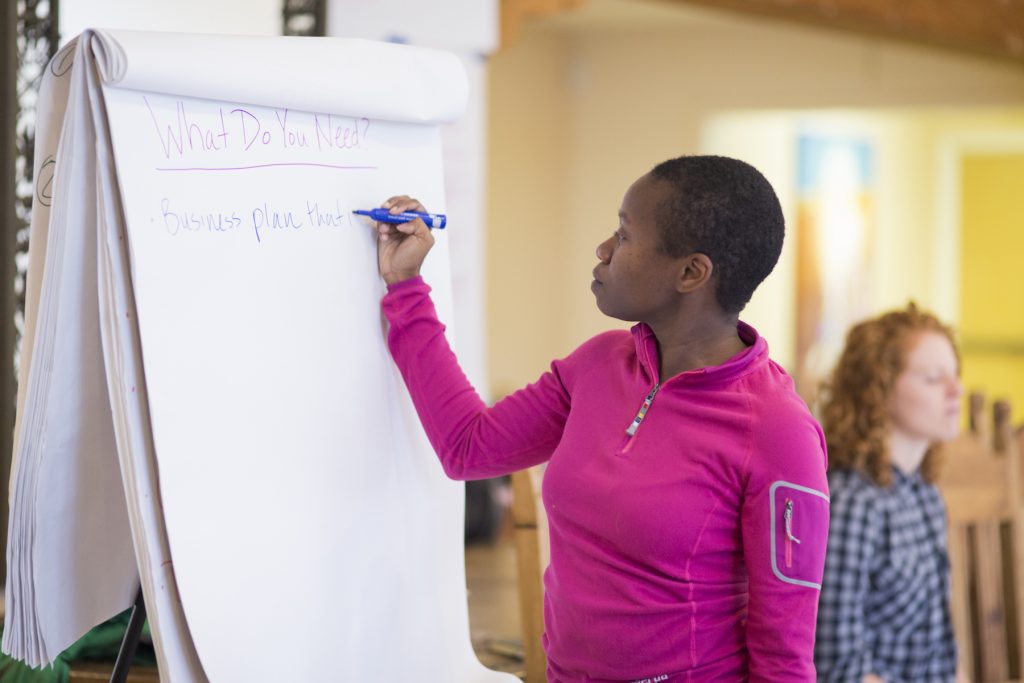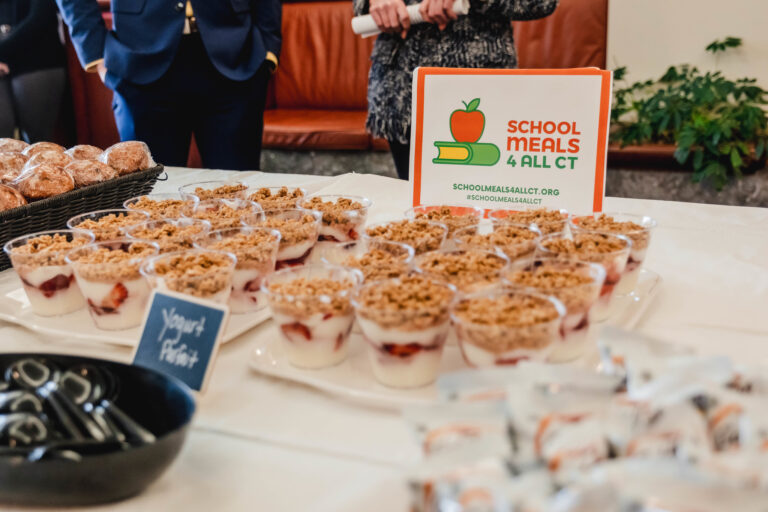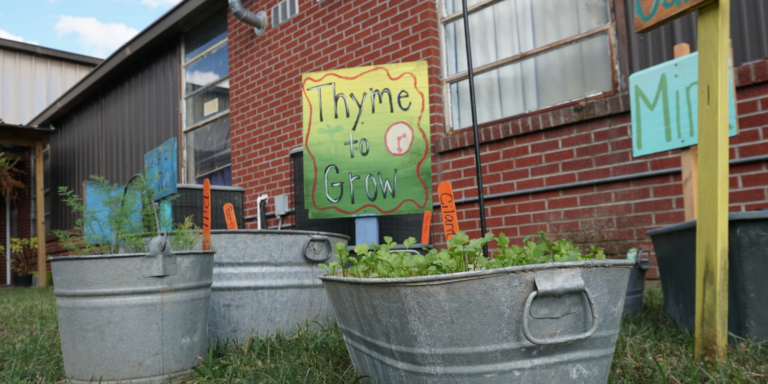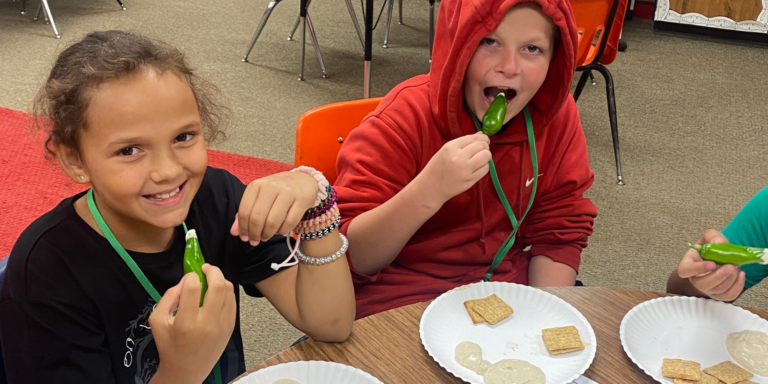3 Hard Truths That Will Help FoodCorps Undo Racism
Tiffany McClain, FoodCorps’ VP of Organizational Equity and Inclusion, offers ways for FoodCorps and other organizations to address racism head-on.
Tiffany McClain, FoodCorps’ VP of Organizational Equity and Inclusion, offers ways for FoodCorps and other organizations to address racism head-on.

One of the first books I was assigned as a budding history student was Edmund Morgan’s American Slavery, American Freedom. The book brings home the fact that the racial prejudice and institutionalized racism that we take for granted today has not always existed. I was at first overwhelmed and then enthralled by the prospect of reading this 350ish-page narrative of the history of colonial Virginia, in which Morgan methodically lays out the systematic, legal construction of a racial hierarchy. Colonial lawmakers intentionally created race-based laws to divide the working classes of European and African descent to prevent a rebellion against the wealthy minority. The laws were then shored up by social and scientific arguments that were later used to justify why a nation founded upon the principle of liberty could allow chattel slavery to exist.
Racism is a kind of stubborn dark wizardry that convinces white people to act against their own interests again and again.
Any legitimate modern-day scientist will tell you that there is no scientific basis for race, but racist stereotypes and imagery are still used to divide poor and working-class people who otherwise have a lot in common. In the late 19th and early half of the 20th century, exaggerated caricatures of black people as subhuman, violent, almost demonic beings were used to reinforce segregation laws and mobilize lynch mobs. We hear echoes of those same stereotypes today when some try to defend the murder of unarmed black boys and men. We hear the echoes in calls for a border wall that are accompanied by unfounded claims of brown-skinned “criminals” invading the country to steal jobs and threaten our safety. Racism is a kind of stubborn dark wizardry that convinces white people to act against their own interests again and again.
But despite all of the the historical and contemporary patterns to the contrary, I still want to believe that we can avoid a racially divided future. As Walidah Imarisha writes in her introduction to the sci-fi anthology Octavia’s Brood, those of us descended from enslaved ancestors would not be here were it not for their steadfast belief in an unknowable future:
“Our ancestors dreamed us up and then bent reality to create us…..we think of our ancestors in chains dreaming about a day when their children’s children’s children would be free. They had no reason to believe this was likely, but together they dreamed of freedom, and they brought us into being.” — Walidah Imarisha
In other words, I have no excuse not to be hopeful. It’s in my DNA. But in order for that hope to bloom into a real future, there is a lot of work to be done.
Changing the school food system might be our stated mission, but undoing racism is the transformational work that needs to happen in order for systemic change to be sustained.
At FoodCorps, we are positioned to be potential bridgebuilders between people across the country who have been conditioned not to see their shared interests. Poor and working-class children of all races and corners of this country suffer from a lack of access to nourishing foods due to economic abandonment and exploitation of their communities. With a reach that spans from rural Maine to Brooklyn, New York, from Greenwood, Mississippi to Flint, Michigan, from the Paso del Norte borderlands to Hilo, Hawaii, we have an opportunity to build a powerful, multiracial, multi-ethnic coalition for change in our school food system.
But we will only get so far if we don’t explicitly and intentionally commit ourselves to undoing racism because it is the foundation upon which extreme economic disparities exist—the very disparities that explain why some children don’t have access to healthy food. It’s not enough to hire a more diverse staff and service corps. It’s not even enough to hire someone like me to lead equity and inclusion work if we are unwilling to identify and look with a critical eye at the stories we tell ourselves about what can and cannot work, what we can change and what we cannot, and—perhaps most importantly—whose interests we exist to serve. Changing the school food system might be our stated mission, but undoing racism is the transformational work that needs to happen in order for systemic change to be sustained.
There is no blueprint for this work. If there were, this post wouldn’t be necessary. My job wouldn’t be necessary. But there are some clear next first steps that we can take:
Learn and share whose ancestral lands you are privileged to stand on and—if they are no longer there—learn and share why that is. If our organization’s mission is to solve a problem produced or sustained in part or entirely by racism, we need to s-p-e-l-l out the connection so that others understand. This might seem simple, but it’s more easily said than done and takes more bravery and consistency than you think. We at FoodCorps are pretty comfortable talking about equity, diversity, and inclusion but utter words like “racism,” “white supremacy,” and “social justice,” and people start to get nervous. Naysayers will try to convince you that naming this history is somehow more divisive than the people who actually created and continue to sustain the divisions. But talking about “DEI” cannot be a substitute for talking about racism. The first step toward undoing oppression is to name it and make it visible—not tiptoeing around it with words that soften the truth.
As if racism is not already complex and messy enough, I want to add another layer and suggest that it is possible for white people to benefit from racism in some real and concrete ways (i.e. white privilege) while being harmed by it in other ways. White working class people may have at times benefited from gaining access to colleges, employment opportunities, and government supports that outright excluded people of color, but racism has so often been used as a wedge to divide the collective political power of poor and working class people that our contemporary news media rarely even acknowledges that they exist as a class and—when they do—assume that all working class people are white and that their daily struggles to make ends meet is somehow fundamentally different than that of people of color. What would the world look like if more people began to see racism as the divisive tomfoolery that it is and join their voices with all working people, regardless of race or geography, to advocate for the best interests of their children? On a more personal note, there are an increasing number of spiritual leaders and trauma specialists who stress the need for white people to examine and heal their own racial wounds. Something has to happen within one’s psyche in order to participate in, look away from, or become numb to the pain of others—especially pain imposed on entire groups of people. And they argue that the psychic impact has been passed on from generation to generation just as indigenous people and people of color experience intergenerational trauma.
This is where the rubber meets the road and the commitment to advancing equity and justice often falls short. Too often there is an implicit assumption that if we have our staff trainings, our healing sessions, our public-facing commitment, and our internal DEI plans, we’ve done all the work we need to do. We can call it good. And don’t get me wrong, these are important steps to take, but if all that pre-work doesn’t bring us to the point of fundamentally rethinking our organizational structure and strategy in a way that centers—and actually takes direction from—the people most impacted by the problem we’re trying to solve (which in our case is disproportionately people of color), then we have not gone far enough. How often do we question our own assumptions about who has the experience and readiness to lead and who has the best solutions to the problems we’re trying to solve? How often do we invite alternative ways of knowing into our decision-making meetings? And do we give them as much credibility and respect as we do the ideas wrapped up in the packaging of PowerPoints, flowcharts, and the Chronicle of Philanthropy? Last but not least, when people of color are invited into strategy conversations do you actually listen to and act based on what they say, even when it challenges you on a fundamental level? If not, we have more work to do.
Over the centuries, many have pointed out the incomplete nature of the American Revolution, how flawed and imperfect the union was from the very beginning because it failed to grapple with the fundamental inequalities at its root and instead reinforced and rationalized them. At FoodCorps, we run the risk of creating the same contradictions by trying to achieve our mission in ways that do not attempt to topple the bedrock upon which so many inequalities stand. To approach our mission in a way that leaves racism exactly as we found it would be as half-done and imperfect as the nation itself. It might be the easiest, most practical way, but it is not the way to freedom.
American Slavery, American Freedom by Edmund S. Morgan
Radical Dharma: Talking Race, Love, and Liberation by Angel Kyodo Williams and Lama Rod Owens
My Grandmother’s Hands: Racialized Trauma and the Pathway to Mending Our Hearts and Bodies by Resmaa Menakem
Octavia’s Brood: Science Fiction Stories From Social Justice Movements by Walidah Imarisha and adrienne maree brown
Read more about FoodCorps’ commitment to diversity, equity, and inclusion.

The Policy Brief, March/April 2024: WIC is Fully Funded

What Makes a Great School Garden?

5 Delicious Spring Recipes to Cook With Kids